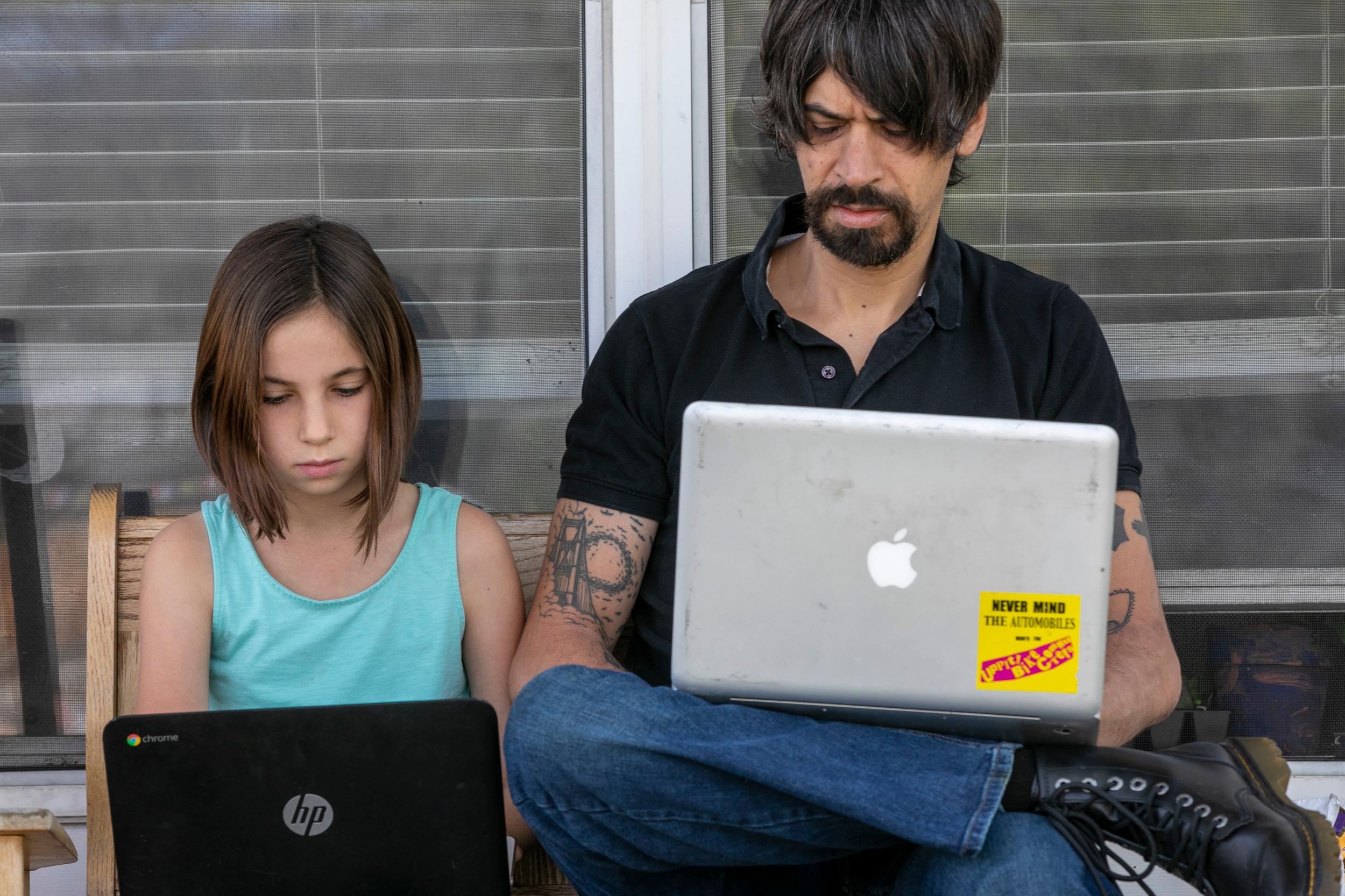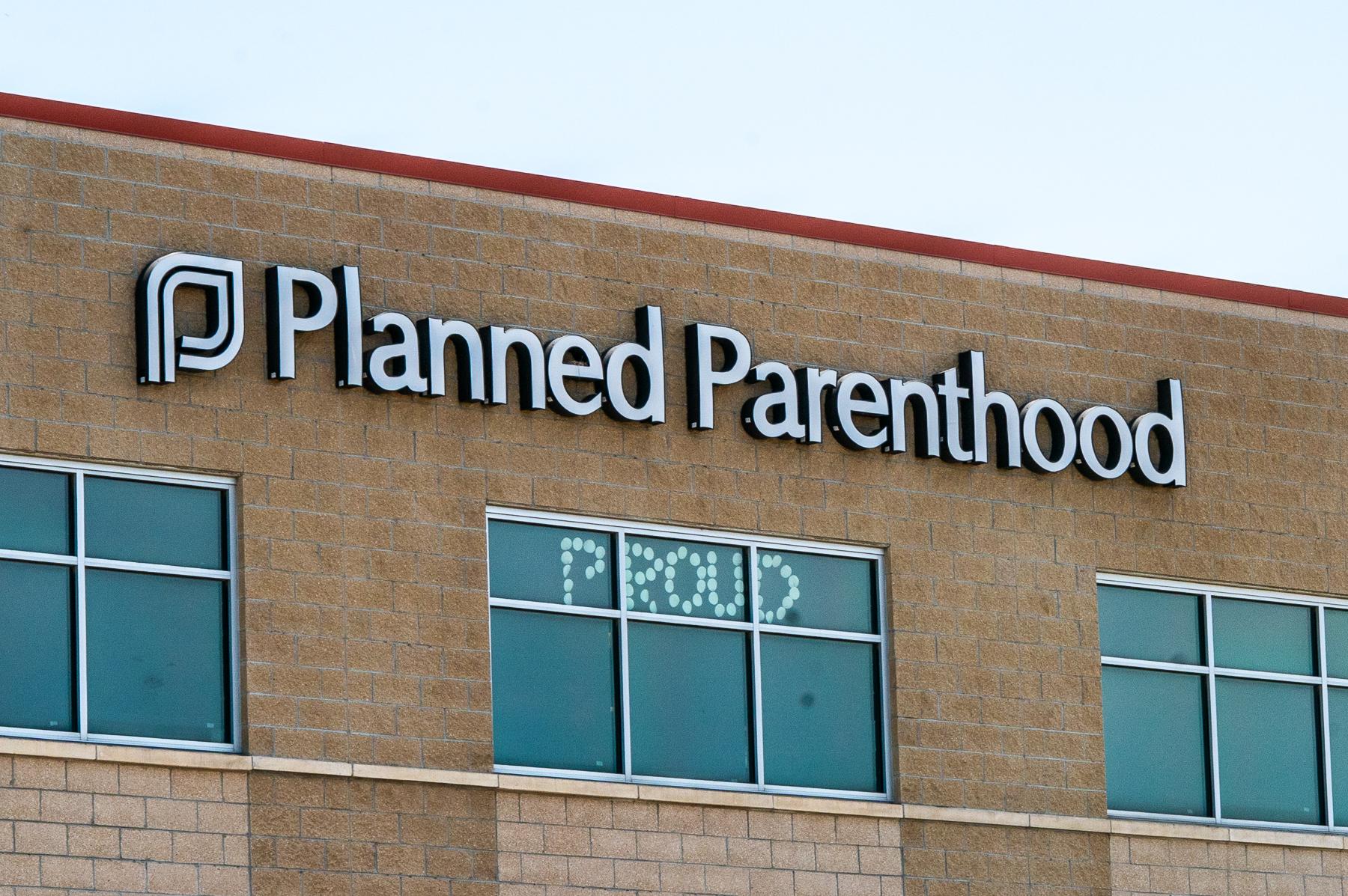
More Colorado schoolchildren will soon have access to high-quality broadband, a critical element of remote learning at a time when parents, educators and elected officials say there’s a risk of a dramatic widening of the gap between haves and have-nots.
Gov. Jared Polis announced Wednesday that T-Mobile will provide free mobile hotspots and up to 100 gigabytes of annual data for 34,000 low-income households. The agreement also includes access to low-cost, internet-ready devices such as tablets or laptops.
“There are still far too many kids at home that lack access to high-speed broadband,” Polis said at a press conference at Fort Logan Northgate School in Sheridan.
As many as 64,000 Colorado students don’t have internet access, according to a state survey conducted by the Colorado Education Initiative and the Colorado Department of Education. Two-thirds of those lacking access are Latino. Only a quarter of the 112 rural districts in Colorado have high levels of connectivity, and many have low or very low levels, according to an analysis by the Regional Educational Laboratory Central at Centennial-based Marzano Research.
“Without broadband, without access students are unable to participate in remote learning,” Polis said. “They’re often unable to do their homework and they’re more likely to disengage and fall behind.”
Attorney General Phil Weiser said the T-Mobile agreement was part of a renegotiated deal with the company when the state ended its participation in a multi-state lawsuit seeking to block the company’s merger with Sprint.
“Today we’re getting the benefits of this,” he said. Weiser said T-Mobile is launching the internet expansion effort nationwide.
Eligibility is based on a family’s participation in the federal free and reduced-price lunch program.
Alongside the T-Mobile deal, the Colorado Department of Education announced it will offer $2 million in federal coronavirus relief funds through grants to school districts to purchase hot spots for low-income families or for setting up towers or mobile trucks to provide internet access to students without.
“Broadband access is now an essential school supply,” said Commissioner of Education Katy Anthes. “It’s a non-negotiable.”
The shift to remote learning has highlighted the state’s digital divide, leaving thousands of low-income families without the tools they need for education: affordable, reliable, high-quality internet connection. Parent Roxana Barraza, who has two children in Denver Public Schools, said when the pandemic started, she was using an internet service that cost $30 per week. It wasn’t enough and at one point, her children couldn’t access school for a week. She saw a TV ad for Comcast’s Internet Essentials program which provides internet for $10 a month.
“This was a relief because due to the pandemic my hours had been cut at work,” she said at the press conference. “Up to this day, I still continue to use that same package which has saved my children’s education.”
Colorado, along with 38 other states, has also filed a petition with the Federal Communications Commission Wednesday to potentially free up millions of dollars to assist students who learn at home. The commission’s E-rate program provides discounts for internet access to eligible schools and libraries.
“During this time, however, many people are learning in a classroom at home,” Weiser said. “They need access to broadband in order to do basic learning. The FCC has the ability to provide funds that support learning. We want them to use that authority to help the many students here in Colorado who need that support.”
Polis also highlighted several other broadband service providers getting service to students for remote learning. Those include Viaero Wireless in the eastern plains, which converted hundreds of inexpensive smartphones into hotspots, Ciello in the San Luis Valley connected 200 students and teachers, and Elevate Fiber, a service from the rural cooperative Delta-Montrose Electric Association, which connected 400 homes and provided two free months of service for students and teachers, and upgraded internet speeds for all customers.









